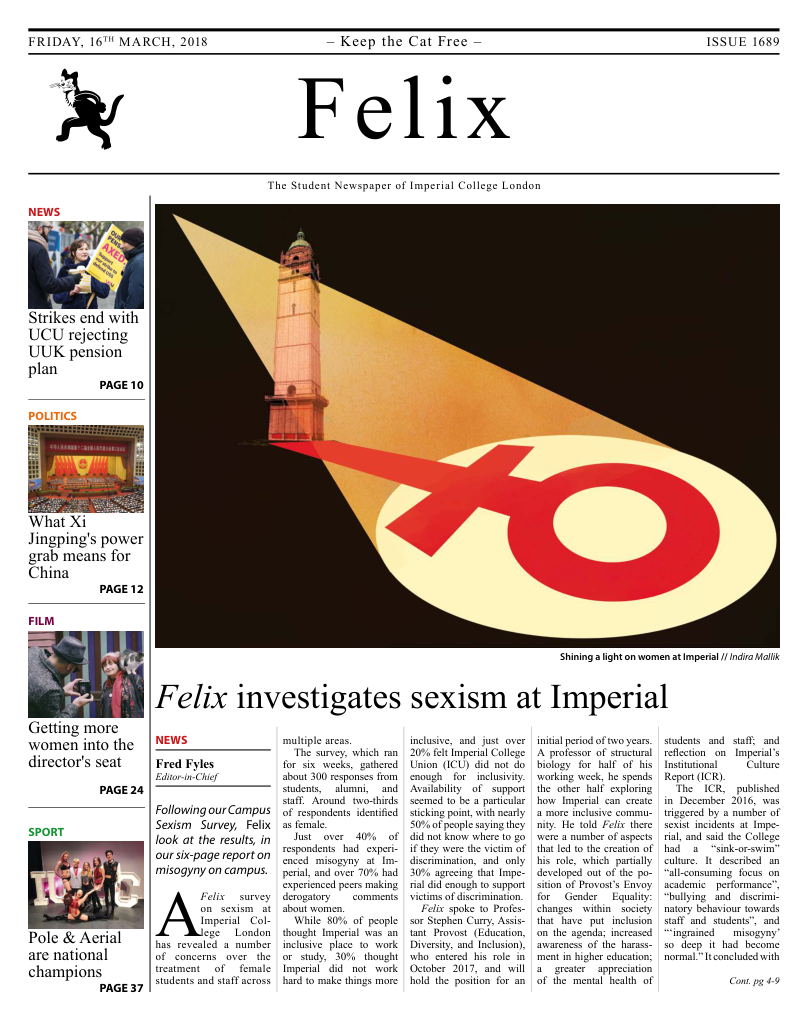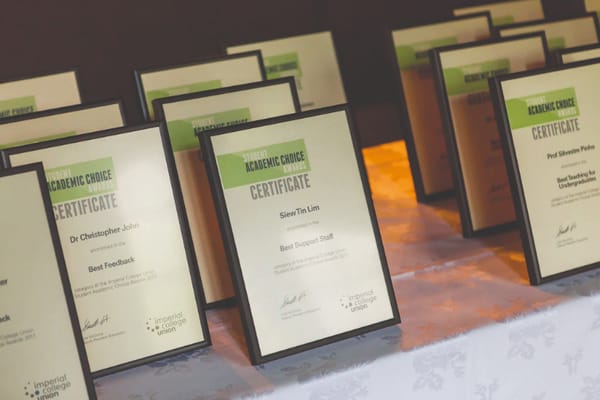TEF: The government strikes back
Degree courses to be rated individually in extension of the Teaching Excellence Framework.

Degree courses are to be rated on teaching quality in an extension of the Teaching Excellence Framework (TEF). In addition to rating each university as a whole, individual subjects will now be categorised as gold, silver, or bronze.
The ten week consultation launched earlier this week by the Department for Education (DfE) is a response to criticisms that current TEF rankings do not reflect the variation in teaching quality across different courses offered by each university.
Universities minister Sam Gyimah said: “Universities will no longer be able to hide if their teaching quality is not up to the world-class standard that we expect.
“The new subject-level TEF will give students more information than ever before...This will help applicants make better choices, and ensure that more students get the value for money they deserve from higher education,” he added.
In addition to the new TEF ratings, Gyimah is launching an open data competition to develop apps designed to help prospective students make their decision. Technology companies and coders will have access to the government’s Longitudinal Education Outcomes dataset, which contains information such as employment and salary up to ten years after graduating. Gyimah said the competition will “harness the creativity and enterprise of coders and tech businesses to create new tools to help applicants get value for money”.
Imperial, which is one of 50 higher education institutes taking part in the pilot scheme, received a gold rating when the first TEF results were released in June 2017. The College’s performance in individual subject league tables however has been more questionable, with Physics at Imperial falling to 30th place in The Guardian’s 2018 league tables. College analysis at the time claimed this low ranking was partly because The Guardian does not include research impact in its analysis.
The subject-level TEF will deliver its objective of “revealing which universities are coasting or relying on their research reputation” by analysing student feedback, drop-out rates, and graduate outcomes. These metrics have previously attracted criticism. The next TEF ratings are due to be published this summer.
When students were asked for their opinions on the TEF, one of the major issues was that a gold university might offer bronze courses and vice versa. Rolling out the TEF to subject level will help to allay these concerns but does nothing to tackle fears that prospective student will be put off applying to certain courses because of their ratings. Research indicates that this will affect BAME applicants the most.
The subject-level TEF may also be a way for the government to get tuition fee changes in through the back door. Under the original proposals, universities with a higher TEF rating would be allowed to raise tuition fees in line with inflation. Following last year’s general election however Theresa May announced that fees would be capped at £9,250 until 2019.
Last month education secretary Damian Hinds said there should be greater variation in tuition fees, with the cost of individual degrees linked to their value “to our society as a whole”. Fees for arts and social sciences could be cut, reflecting the lower earnings arts graduates typically earn compared to those studying sciences.
Former education secretary Justine Greening, whom Theresa May removed from her cabinet post shortly before the announcement was made, highlighted the risks of the proposal.
Speaking on Peston on Sunday at the time, Greening said: “The thing that matters is social mobility and making sure we don’t end up with a system where young people from more disadvantaged backgrounds feel they ought to do one of the cheaper degrees, rather than doing the agree they want that will unlock their potential.”
This is particularly true of Imperial, which was recently revealed to be the most unequal university in the UK, due to the additional financial pressures of living in London.









